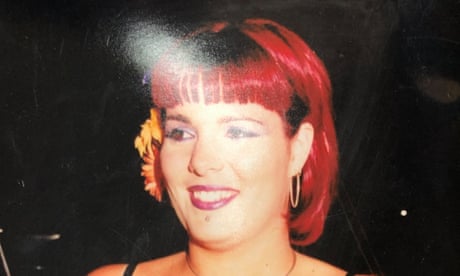- by foxnews
- 10 Mar 2025
‘Her calling’: NSW father says daughter’s generosity was behind her death in Kambo frog toxin ritual
‘Her calling’: NSW father says daughter’s generosity was behind her death in Kambo frog toxin ritual
- by theguardian
- 05 May 2023
- in news

Natasha Lechner's father relived the final agonising moments of his only daughter's life through many lenses as he sat in the gallery of a Lismore courtroom for the inquest into her 2019 death.
Over several days he heard three medical experts - a toxicologist, a cardiologist and a pathologist - discuss the nature of her death and the likelihood of its relationship to the secretions of an Amazonian frog, which had been applied to burns on her skin during a "Kambo" ceremony moments before she died.
He heard from the woman who applied that frog mucus, a self-described experienced Kambo practitioner. Another woman told the inquest about how she had only just trained Lechner to conduct ceremonies deemed safe by the International Association of Kambo Practitioners (IAKP).
He had heard Dr Lorraine du Toit-Prinsloo describe 61 lesions in various stages of healing upon Lechner's body from where her skin had been burnt and Kambo applied. There were three burns on her chest and two on her arm that were angry and red at the time of her death, he and the inquest heard.
On Thursday it was Frank Lechner's chance to paint a picture of his late daughter.
"Right," he said, as he took to the stand and pulled a black-framed photograph of his daughter from a bag. "I thought I'd put a face to a name."
"Beautiful, absolutely beautiful," the state coroner Teresa O'Sullivan said.
"Takes after her mother," replied Frank, bald, burly and besuited.
Lechner, her father stressed, was not a risk taker.
He told the inquest of her being "an old soul in a young body" as a child, whose "incredible wisdom" was expressed in poetry and storytelling and a spirituality present from childhood.
She was profoundly generous, Frank said, recalling how in her travels Natasha didn't have "two bob to rub together" but gave what she had to buskers.
"That's the person she was," he said.
But health problems dogged Lechner from her first breath, when she and twin brother Christian were flown to Sydney and put on ventilators after being born two months premature.
Later in life she would develop a degenerative condition in her back that almost left her unable to walk and burdened her with recurring pain. Medical reports of her final condition, at the age of 39, described Lechner as morbidly obese.
It was this combination of pain, spirituality and a desire to help others that led Lechner to take a course with the IAKP in the weeks before she died, the inquest heard.
Lechner, who had been administered Kambo for years, sincerely believed it was complementary to the western treatment she also sought and she wanted to be able to help others by learning the art of what she was told was the safe administration of Kambo.
"She felt as though it was her calling," her father said.
Kambo was legal in Australia at the time and - until it was banned in October 2021 - relatively easy to obtain.
Frustration crept into Lechner's testimony at this point. The IAKP, he told the inquest, may have been set up with the best of intentions but it appeared it had become so big it was "hard to control elements within the organisation".
"The lack of information and knowledge on the part of the practitioner surprised me," he said.
He said there was a "contradiction" between the statements of Kelly-Anne Green - who called an ambulance immediately upon returning to their shared home after the ceremony to find her friend in trouble - and that of Victoria Sinclair. The inquest heard Sinclair had administered the Kambo but did not call an ambulance and was unaware that the number for emergency services in Australia was 000.
Green described Lechner frothing at the mouth, but "there was no mention of that from Vicky", Frank said.
He told the inquest that both the founder of the IAKP and its accredited practitioner who trained Lechner had "now washed their hands of the organisation entirely".
That Lechner had so many burns applied to her body over the two-week course of her training "just beggars belief", he said.
Then anger turned to despair, as Frank Lechner found himself, momentarily, unable to talk.
"I'm supposed to be a tough prison officer," he said with tears in his eyes. "As a father, you always want to be there in these times and I am very disappointed in how first aid was not rendered.
"Not all of us are heroes."
The coroner will hand down her findings next Friday.
- by foxnews
- descember 09, 2016
Ancient structure used for cult 'rituals' discovered by archaeologists
A Neolithic Timber Circle was discovered by archeologists in Denmark resembling the historical landmark Stonehenge in the U.K. It is open to be viewed by the public.
read more


